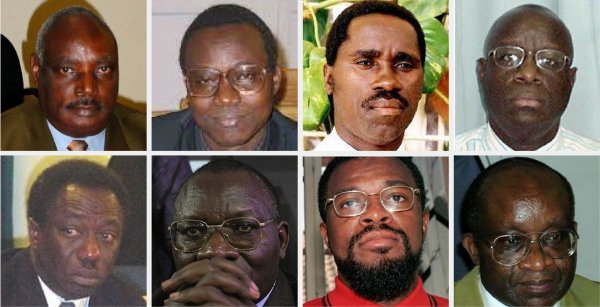The lawyers of eight Rwandans who have been detained in Niger for the past eight months even after being released by the International Criminal Tribunal for Rwanda (ICTR) have appealed to governments around the world to take their clients in.
Appeals to 42 countries to come to the rescue of the eight, who have been living under illegal house arrest in Niamey, Niger, since January 2022, have fallen on deaf ears.
“[International Residual Mechanism for Criminal Tribunals] IRMCT Registrar Abubacarr Tambadou has contacted more than 30 countries requesting that they relocate some or all of the men. Defence counsel have campaigned at the Security Council and have contacted an additional 12 countries on their clients’ behalf. No country has so far been willing to agree to relocate any of the men,” the advocates said in a press release dated August 23, 2022.
The Rwandans, who have either been acquitted or released by the ICTR, were transferred from the United Nations’ IRMCT, the successor institution to the ICTR and the International Criminal Tribunal for the former Yugoslavia (ICTY), in Arusha, Tanzania, to Niger, supposedly to live freely and permanently.
The lawyers urged governments that respect the rule of law to end their clients’ suffering, adding that the Rwandans’ situation is dire as they are running out of funds to sustain themselves. The advocates are working pro bono after the IRMCT refused to provide legal assistance to the detained men.
The Rwandans live in fear of being extradited to their homeland, where they are likely to be persecuted by the government of President Paul Kagame, whose poor human rights record has raised concerns in the international community. The eight have expressed fears that Rwanda might not respect their United Nations court acquittal and still consider them “génocidaires”, and even retry them, in violation of the double jeopardy or ne bis in idem rule.
The men lived in a safe house in Arusha until November 15, 2021, when the Registrar of the IRMCT reached an agreement with the government of Niger to host the Rwandans and give them identity papers. However, on December 23, 2021, the government of Rwanda expressed its concern and the government of Niger responded by expelling the eight “for diplomatic reasons” and ordered them to leave within seven days.
An IRMCT judge ordered Niger to rescind the expulsion order and allow them to stay until the end of January 2022, when they were supposed to be relocated to another country. This has not happened and the Rwandans continue to live under house arrest, quite contrary to the judge’s order to allow them freedom of movement and return their residency papers.
The eight were political and military officials during the 1994 Rwandan genocide. François-Xavier Nzuwonemeye, 66. Prosper Mugiraneza, 65, Protais Zigiranyirazo, 84, and Andre Ntagerura, 77, were acquitted at the ICTR between 2004 and 2014. Alphonse Nteziryayo, 74, Tharcisse Muvunyi, 69, Anatole Nsengiyumva, 72, and Innocent Sagahutu, 60, were convicted at the ICTR and released after serving their prison sentences.
Although their wives and children have conventional asylum or are citizens of France, Belgium, Luxembourg, The Netherlands, Canada, and Denmark, those countries have refused to allow them to rejoin their families.
“The international community has as much of a duty to respect a judgment of acquittal at the ICTR as it does to prevent genocide denial after a conviction. The failure to restore the rights of an acquitted person is a failure of international justice that must be remedied,” Peter Robinson, an American lawyer defending Nzuwonemeye said
“States regularly meet in The Hague and around the world, and proclaim their commitment to international justice. Part of that commitment must include giving those acquitted by international courts a meaningful chance at a dignified remainder of their life, together with their families,” Kate Gibson, an Australian lawyer defending Mugiraneza, said.
Allison Turner, a Canadian representing Nsengiyumva, expressed concern that the UN principle of non-refoulement is at risk of violation in the case of the eight Rwandans. “The UN must adhere to its values and cooperate with us to achieve our common goal of reuniting the men with their families,” she said.
The other lawyers who signed the statement were John Philpot (Canadian – Zigiranyirazo), Abbe Jolles (American – Muvunyi), Barbara van Straaten (Dutch – Ntagerura), Iain Edwards (British – Nteziryayo), and Jean Flamme (Belgian – Sagahutu).
Related story: https://jfjustice.net/how-innocent-is-innocent-at-international-courts-the-plight-of-eight-rwandans/







